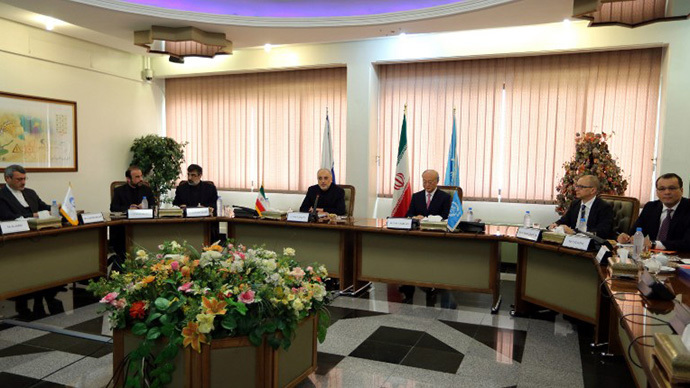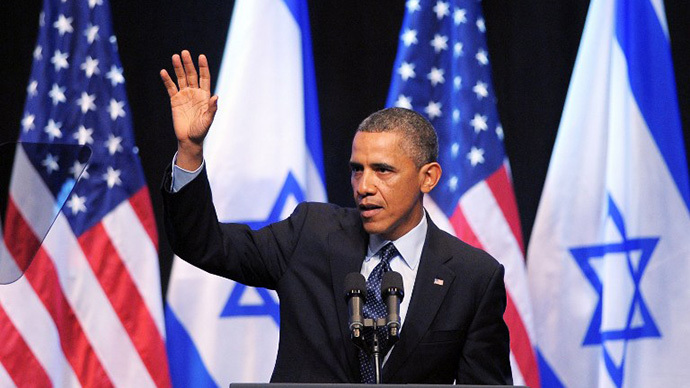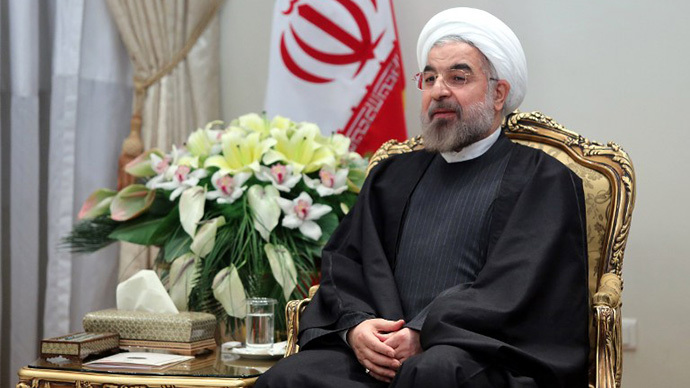Nuclear talks with Iran reach point of no return

The Geneva talks on a landmark nuclear deal with Iran, between Tehran and the six world powers, are in the final stage, with most parties signaling that agreement is no longer a phantom but a reality realizable within months, if not weeks.
As the day of the crucial
negotiating round slated for Nov 20 nears, both diplomats and
media are overwhelmed with a feeling of history being made in the
walls of the Geneva Intercontinental hotel.
Is the process really irreversible, as some believe it to be? And if the deal is reached, what will it mean for Tehran and the whole world – an end of a decades-long Iranian crisis, or a new disaster, a “bad deal”, to quote Israeli Prime-Minister Benjamin Netanyahu?
To spell out Israeli concerns, can it be a deal which would only trigger a nuclear arms race in the vast Middle East region and finally force the Jewish state into a desperate move – to act unilaterally against Iran?
A cup of coffee in the Intercontinental hotel costs $9, but what the real price and the outcome of the enigmatic nuclear deal presumably made on its premises will be is as yet unknown. What is clear is that the moment for such a deal today is the most appropriate since the 1979 Islamic revolution in Iran, with all sides playing high stakes for diplomacy, not war.
To start with, what gives the diplomacy a unique chance is the
phenomena of the two leaders in Washington and Tehran. As
for Barack Obama, it is an open secret that he has developed the
reputation of “the most anti-Israeli president in US
history” (this is how he is seen in Tel-Aviv). While the
Israeli leadership was very unhappy with President Obama’s Middle
East initiatives from the very start, Obama turned a blind eye on
most of Israel’s concerns. Obama made it clear that despite
strong bonds of strategic alliance, the US and Israel see
different ‘red lines’ in the Iranian crisis. Obama signaled that
he can put up with some limited Iranian nuclear program, the
scale of which is currently being negotiated in Geneva. However,
Netanyahu denies the very idea of Iran enriching uranium and
keeping its centrifuges working. According to Netanyahu, the deal
with Iran would backlash and America would also find itself
vulnerable to future Iranian nuclear strike.

During the 2012 US presidential race it was not Barack Obama, but Republican presidential hopeful, Mitt Romney, who Netanyahu put his hopes on – and Obama is probably paying him back today. Moreover, the 2009 Noble Peace Prize granted to Mr. Obama as an advance for something not yet achieved is probably forcing him to prove that the decision of the Noble committee was something not to be mocked or ridiculed, as is happening today, but a prophetic move.
However, it is not only “the most anti-Israeli American president” in Washington, but also “the most pro-Western president” sitting in Tehran who are giving diplomacy a golden opportunity and making all sides reinforce their efforts to reach compromise. The landslide victory of the Islamic reformist cleric, Hassan Rowhani, in June’s presidential election in Iran has revitalized nuclear talks between Tehran and the big six world powers, which had degenerated into a pointless, torturous process and lost its steam under the former Iranian president, Mahmud Ahmadinejad.
Mr. Rowhani has to produce something tangible for Islamist
hardliners at home who are warning him of betraying national
interests. His trump card could be an end to the nuclear standoff
and the era of isolation and suffocating sanctions. The
same way Mr.Obama has to outwit US neocons and the army of his
critics abroad by telling them that his stick-and-carrot policy
did work, while the war scenario with Iran proved irrelevant.

All in all, as both Presidents Obama and Rowhani have invested heavily in the present day’s big nuclear gamble; they find themselves in the same boat and should stick together. Their domestic political considerations and their international standing mean they can’t allow themselves a last-minute failure of the much-anticipated deal.
And finally, what we also see today in Geneva is an unprecedented unanimity within the ranks of the big six world powers, with US and Russian diplomats not trading jabs or making grim statements, as it used to be, but praising each other’s roles regarding Iran. This week, Russia’s Foreign minister, Sergei Lavrov, went as far as acknowledging the leading role of the American delegation during the latest round of talks in Geneva, headed by State Secretary Kerry. I can hardly recall a similar moment of harmony in US-Russian relations and it was only this September when President Putin called Mr.Kerry “a liar”.
As for France, which is somehow standing aside and playing bad cop in Geneva, it alone can surely not go as far as putting the brakes on a nuclear deal with Iran. It may sound like gossip, but one of the political Cassandras here this week whispered into my ear that in Geneva the “French are working for Saudi money”, hinting at lucrative contacts and other business interests.
So, it looks like the negotiating process with Iran has already crossed the point of no return and the question of the historic nuclear deal is a matter of not “if”, but “when”. There is no doubt that in the days and weeks to come we will witness desperate attempts by Israel to step on the brakes and press all the alarm buttons, but it looks like it is too late now.
A nuclear Iran is a fast-growing reality, so the task of the day for the world community is not to deny, but to harness the Iranian atom – to put it under well-calculated international scrutiny, free of any prejudice and paranoia.
The statements, views and opinions expressed in this column are solely those of the author and do not necessarily represent those of RT.
The statements, views and opinions expressed in this column are solely those of the author and do not necessarily represent those of RT.













